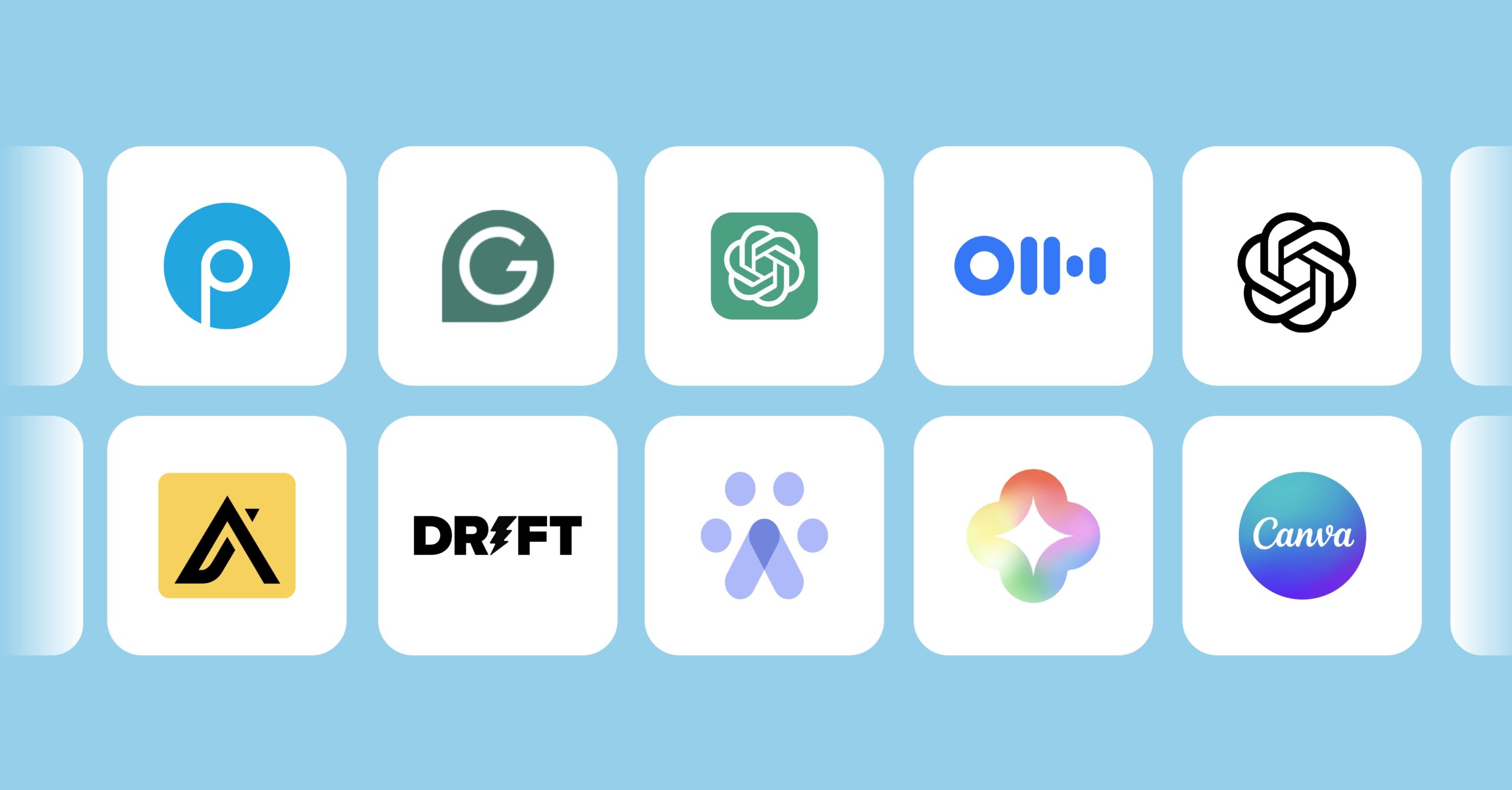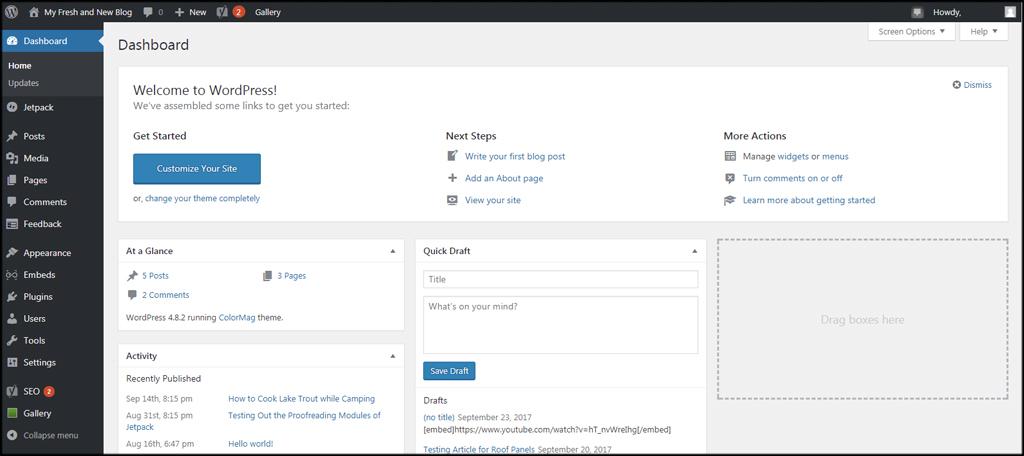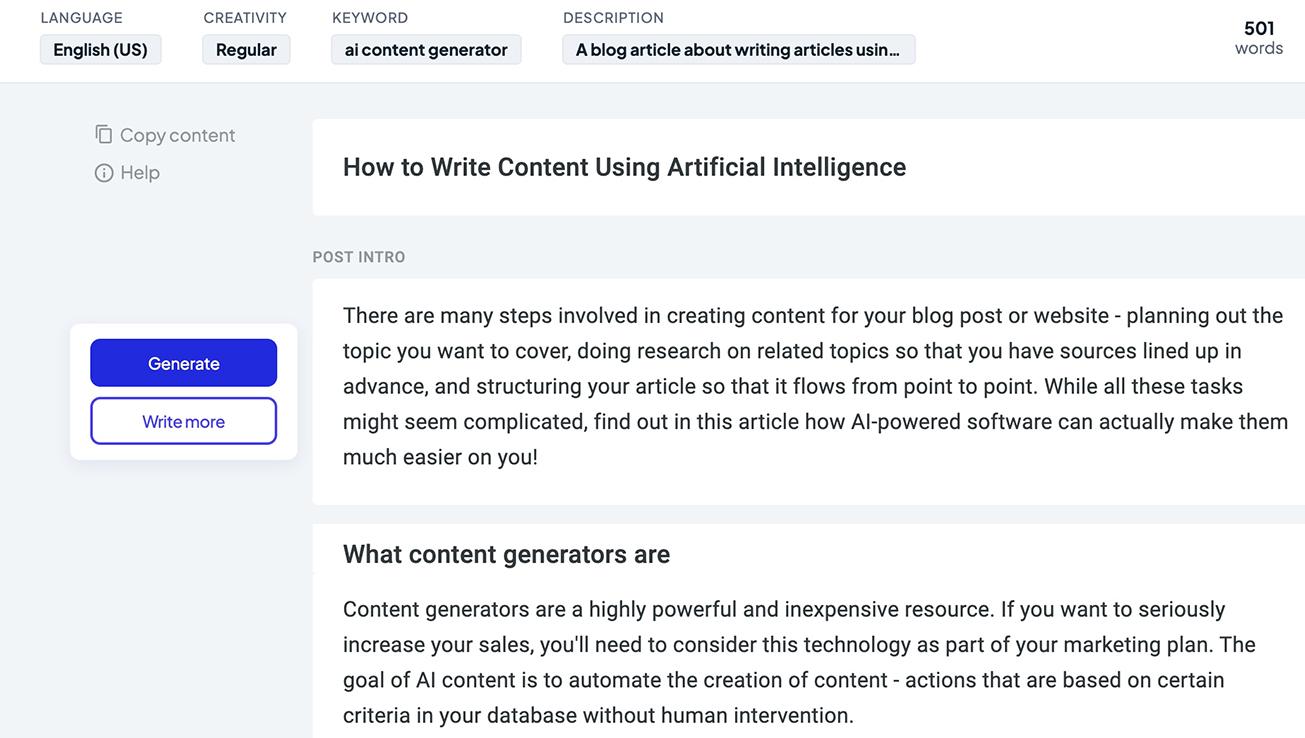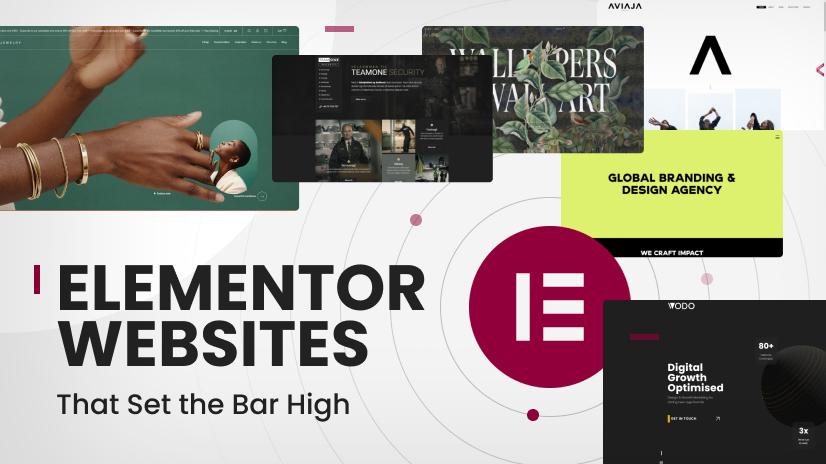
In today’s digital world, having a strong online presence is crucial for small businesses looking to thrive. But let’s face it: building a website can often feel overwhelming, especially if you’re juggling a million other tasks. That’s where website builders come to the rescue! These user-friendly platforms allow you to create stunning, professional-looking websites without needing to learn complex coding or hire an expensive developer. Whether you’re starting from scratch or looking to revamp your existing site, choosing the right website builder can save you both time and money. In this article, we’ll explore the 12 best website builders tailored specifically for small businesses. With the right tool at your fingertips, you’ll be able to showcase your brand, engage customers, and watch your business flourish—all while keeping your budget intact. Let’s dive in and find the perfect fit for your entrepreneurial journey!
Understanding the Importance of a Great Website for Your Small Business
In today’s digital age, having a well-crafted website is not just a luxury; it’s a necessity for small businesses aiming to thrive. A great website serves as your online storefront, showcasing your brand, products, or services to a global audience. With consumers increasingly turning to the internet for information and shopping, a professional website can set you apart from the competition and establish your credibility.
First impressions matter, and often, your website is the first interaction potential customers will have with your brand. A visually appealing and user-friendly design can engage visitors and encourage them to explore your offerings. Important elements to consider include:
- Responsive Design: Your site should look great on all devices, from smartphones to desktops.
- Clear Navigation: Users should easily find what they’re looking for without frustration.
- High-Quality Content: Engaging text and visuals can captivate your audience and convey your brand’s message.
A great website also boosts your search engine visibility. When optimized for search engines, your site can attract organic traffic, leading to increased brand awareness and potential sales. Utilize SEO best practices, such as keyword optimization and quality backlinks, to ensure that your website ranks well on search engine results pages.
Furthermore, your website is a powerful marketing tool that works 24/7. Unlike traditional advertising methods, a website can continuously promote your business without ongoing costs. You can integrate various online marketing strategies, such as:
- Social Media Links: Connect your social platforms to drive traffic and enhance engagement.
- Email Marketing: Capture leads through signup forms and nurture them via targeted campaigns.
- Analytics Tools: Use data to understand visitor behavior and optimize your offerings.
Cost-effectiveness is another significant advantage of having a website. With numerous website builders available, you can create and manage your site without breaking the bank. Many of these platforms offer user-friendly interfaces, allowing you to design a professional-looking website without needing to hire a developer. Consider platforms like:
| Website Builder | Best For | Starting Cost |
|---|---|---|
| Wix | Drag-and-drop ease | Free & Paid Plans |
| Squarespace | Beautiful templates | From $12/month |
| Shopify | E-commerce | From $29/month |
| WordPress | Customizability | Free & Paid Plans |
Lastly, a well-developed website allows for better customer interaction through features like live chat, contact forms, and social proof elements like reviews and testimonials. These components not only improve user experience but also establish trust and foster connections with your audience.
investing in a great website is one of the most impactful decisions you can make for your small business. It not only enhances your online presence but also opens up a world of opportunities for growth, engagement, and success.

Key Features to Look for in a Website Builder
Choosing the right website builder can make all the difference for small businesses looking to establish a strong online presence. Here are the key features you should consider:
- User-Friendly Interface: A drag-and-drop editor is essential for those without technical skills. Look for builders that offer intuitive designs that allow you to create and edit your site effortlessly.
- Responsive Design: With more users accessing websites via mobile devices, it’s crucial that your website looks great on all screen sizes. Ensure the builder automatically optimizes your site for mobile responsiveness.
- Customization Options: While templates can provide a great starting point, the ability to customize layouts, colors, and fonts will allow your brand’s personality to shine through.
- SEO Tools: Effective search engine optimization is vital for visibility. Seek a website builder that includes built-in SEO features, such as customizable meta tags, alt text for images, and easy URL editing.
- eCommerce Capabilities: If you plan to sell products or services online, ensure the builder supports eCommerce functionalities, such as secure payment processing, shopping cart integration, and inventory management.
- Analytics Integration: Understanding your audience is key to growth. A good website builder should integrate smoothly with analytics tools to help you track visitor behavior and optimize performance.
- Customer Support: Having access to reliable customer support can save you time and frustrations. Look for builders that offer live chat, email support, or extensive help centers.
- Scalability: As your business grows, your website will need to adapt. Choose a builder that offers scalability options so you can easily add new features or expand your site as needed.
| Feature | Importance |
|---|---|
| User-Friendly Interface | Essential for ease of use |
| Responsive Design | Ensures mobile accessibility |
| SEO Tools | Boosts online visibility |
| eCommerce Capabilities | Facilitates online sales |
By focusing on these crucial aspects, you can ensure that your website not only meets your needs but also provides a seamless experience for your visitors. Investing time in selecting the right website builder now can save you headaches down the road and help your small business thrive online.

User-Friendly Platforms for Beginners
Building a website can seem daunting, especially for those just starting their journey in the digital world. Thankfully, numerous platforms are designed with beginners in mind, offering intuitive interfaces and helpful features that make the process smoother and less stressful.
When looking for user-friendly website builders, consider platforms that provide:
- Drag-and-drop functionality: This feature allows users to easily place elements on their pages without any coding knowledge.
- Responsive templates: Pre-designed templates that automatically adapt to any device, ensuring your site looks great on desktops, tablets, and smartphones.
- Built-in SEO tools: Essential for helping your business gain visibility online without needing extensive knowledge of search engine optimization tactics.
- Customer support: Access to helpful resources, live chat, or email support can make a significant difference when you encounter issues.
One such platform is Wix, known for its versatility and easy setup process. With hundreds of customizable templates, users can create a professional-looking site in no time. Its drag-and-drop editor makes adding images, text, and other elements a breeze, making it an excellent choice for those with no prior experience.
Another strong contender is Squarespace. This platform shines with its stunning designs and sophisticated layouts, making it a favorite among creative professionals. Squarespace takes care of the technical aspects of running a website, allowing users to focus on content creation instead.
If you’re on a tight budget, consider Weebly. It offers a free plan that includes essential features, allowing beginners to test the waters before committing financially. Plus, its straightforward interface means you can have your site up and running in just a few hours.
| Platform | Key Features | Best For |
|---|---|---|
| Wix | Drag-and-drop, customizable templates | All-around users |
| Squarespace | Stunning designs, built-in SEO | Creatives and portfolios |
| Weebly | Free plan, easy setup | Budget-conscious beginners |
For those looking for a more e-commerce-focused solution, Shopify is an excellent choice. It’s specifically designed for online stores and offers numerous features to help you manage products, payments, and shipping effortlessly. Its user-friendly interface means you can start selling quickly without getting bogged down in technical details.
Ultimately, the best website builder is the one that meets your specific needs while allowing you to create a site that reflects your brand’s identity. By choosing a platform with a user-friendly design, you’ll be on your way to establishing a robust online presence without breaking a sweat.
Affordable Options That Dont Compromise on Quality
When it comes to building a website for your small business, striking a balance between affordability and quality is key. Fortunately, there are several website builders that offer robust features without breaking the bank. Here’s a look at some of the best options that enable you to create a professional online presence while keeping your budget in check.
- Wix: Known for its drag-and-drop interface, Wix offers a free plan and reasonably priced premium options. With hundreds of templates and a powerful App Market, you can customize your site to meet your specific business needs.
- Squarespace: While slightly on the pricier side, Squarespace’s all-in-one platform delivers stunning design templates that are mobile-responsive. The quality of its built-in features, like e-commerce capabilities, makes it worth the investment.
- Weebly: Weebly is a fantastic choice for small businesses looking to set up a simple yet effective website quickly. Its user-friendly interface and affordable pricing plans make it a popular choice, especially for those just starting out.
- WordPress.com: With a free tier and various premium plans, WordPress.com allows you to create a professional blog or website with ease. Its extensive plugin library means you can add features as your business grows.
In addition to these user-friendly platforms, consider the following that allow you to enhance your site without straining your finances:
| Website Builder | Best For | Starting Price |
|---|---|---|
| Shopify | E-commerce stores | $29/month |
| SiteGround | WordPress hosting | $3.99/month |
| GoDaddy | Fast website setup | $10/month |
| Webflow | Design flexibility | $12/month |
Another great option is Jimdo, which uses AI to help you create a personalized website in minutes. This is ideal for busy entrepreneurs who want to get online quickly and efficiently. Plus, its affordable plans ensure you won’t overspend while still achieving a professional look.
Don’t overlook Site123 if you need a straightforward approach. This builder offers templates that are easy to customize and comes with a free plan. It’s perfect for those who need a quick start without the added complexity of design tools.
Lastly, Strikingly specializes in one-page websites, making it a fantastic choice for small businesses looking to showcase a product or service without the distractions of a multi-page site. Its free plan allows you to test the waters before committing financially, giving you peace of mind.
In a digital landscape where first impressions matter, these affordable website builders empower small businesses to establish a strong online presence without compromising on quality. By leveraging these tools, you can create a site that not only looks good but also drives results for your business.
E-commerce Capabilities to Boost Your Online Store
When it comes to running a successful online store, e-commerce capabilities are essential for transforming your website into a revenue-generating machine. With the right website builder, you can access numerous features that will not only enhance your store’s functionality but also improve customer experience and streamline operations.
One of the most impactful features is a user-friendly shopping cart system. This allows customers to easily add products, view their selections, and seamlessly checkout. By choosing a platform that supports various payment gateways, you cater to a broader audience. Popular options like PayPal, Stripe, and Square should be on your list to ensure that your customers can make payments with ease.
Additionally, consider incorporating powerful inventory management tools. Keeping track of your stock levels is crucial, especially if you are offering multiple products. With automated notifications for low inventory and stock alerts, you can avoid overselling while maintaining a smooth supply chain. This feature not only saves time but also eliminates the risk of disappointing customers.
Mobile responsiveness is another vital capability. With the increasing number of consumers shopping on their smartphones, having a website that looks great and functions well on mobile devices is non-negotiable. Choose a builder that offers responsive templates to ensure that your store provides an optimal browsing experience across all devices.
Don’t underestimate the power of SEO tools. A website builder that includes built-in SEO capabilities can significantly enhance your online visibility. Look for features such as customizable URLs, meta tags, and image optimization to help your products rank better in search engines. This not only drives organic traffic but also increases your chances of conversions.
Moreover, integrating analytics and reporting tools allows you to monitor your store’s performance closely. You can track visitor behavior, sales trends, and conversion rates. By understanding what works and what doesn’t, you can make data-driven decisions to improve your marketing strategies and product offerings.
Another feature to consider is the ability to create custom promotions and discounts. A flexible pricing strategy can attract new customers and encourage repeat business. Look for a platform that allows you to easily set up coupon codes, seasonal sales, and promotional bundles to entice shoppers and increase average order value.
Lastly, ensure that your chosen website builder includes customer relationship management (CRM) tools. This helps you to maintain a connection with your customers beyond their purchases. By collecting email addresses and managing customer data effectively, you can engage in targeted marketing campaigns, ensuring your audience feels valued and informed about your offerings.
| Feature | Benefit |
|---|---|
| Shopping Cart System | Enhances user experience and simplifies checkout |
| Inventory Management | Prevents overselling and manages stock efficiently |
| Mobile Responsiveness | Caters to mobile shoppers for increased conversions |
| SEO Tools | Improves visibility and drives organic traffic |
| Analytics | Facilitates data-driven decision making |
| Promotions | Attracts customers and boosts sales |
| CRM Tools | Enhances customer engagement and loyalty |
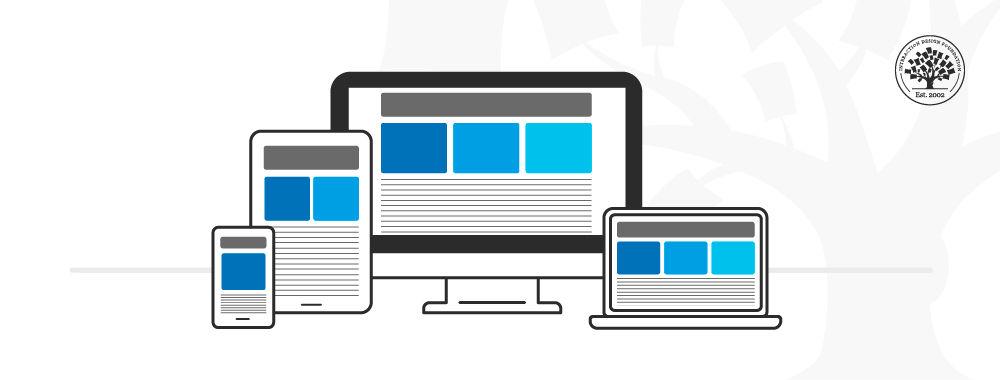
Responsive Design for Mobile-Friendly Experiences
In today’s digital age, ensuring your website is mobile-friendly isn’t just a bonus; it’s a necessity. With over half of global web traffic coming from mobile devices, a responsive design can make or break your online presence. Responsive design adapts your website layout across various screen sizes, providing an optimal user experience whether your visitors are on a smartphone, tablet, or desktop. This adaptability not only enhances usability but also boosts your site’s search engine ranking.
When selecting a website builder, look for key features that emphasize responsive design:
- Mobile Preview Options: Check if the builder allows you to preview how your site will look on different devices before publishing.
- Flexible Layouts: Choose a platform that offers drag-and-drop functionality with customizable templates that automatically adjust to screen size.
- Automatic Scaling: Ensure that images and content resize automatically to fit any display, enhancing load times and user engagement.
- Cross-Browser Compatibility: Verify that the builder’s responsive designs work seamlessly on all major browsers, ensuring a consistent experience for all users.
Investing in a website builder that focuses on responsive design can save you time and resources in the long run. A mobile-friendly site reduces bounce rates, keeps visitors engaged, and increases the likelihood of conversion. Consider the following advantages:
- Improved User Experience: A site that looks great and functions well on any device encourages users to stay longer and explore.
- SEO Benefits: Google favors responsive websites, which means better chances of ranking higher in search results.
- Cost-Effective Maintenance: Maintaining one responsive site is far less complicated than managing separate sites for mobile and desktop.
There are several website builders tailored for small businesses that prioritize responsive design. Below is a comparison of some popular options:
| Website Builder | Responsive Design | Ease of Use | Cost |
|---|---|---|---|
| Wix | Yes | Very Easy | Starting at $14/month |
| Squarespace | Yes | Moderate | Starting at $12/month |
| Weebly | Yes | Very Easy | Starting at $6/month |
| Shopify | Yes | Easy | Starting at $29/month |
Choosing the right website builder with responsive design capabilities can significantly impact your small business’s online success. By offering a seamless mobile experience, you not only cater to the growing number of mobile users but also enhance your brand’s reputation and reach. So, when you’re on the hunt for a website builder, keep your focus on those that provide robust responsive design features. Your future customers will thank you!
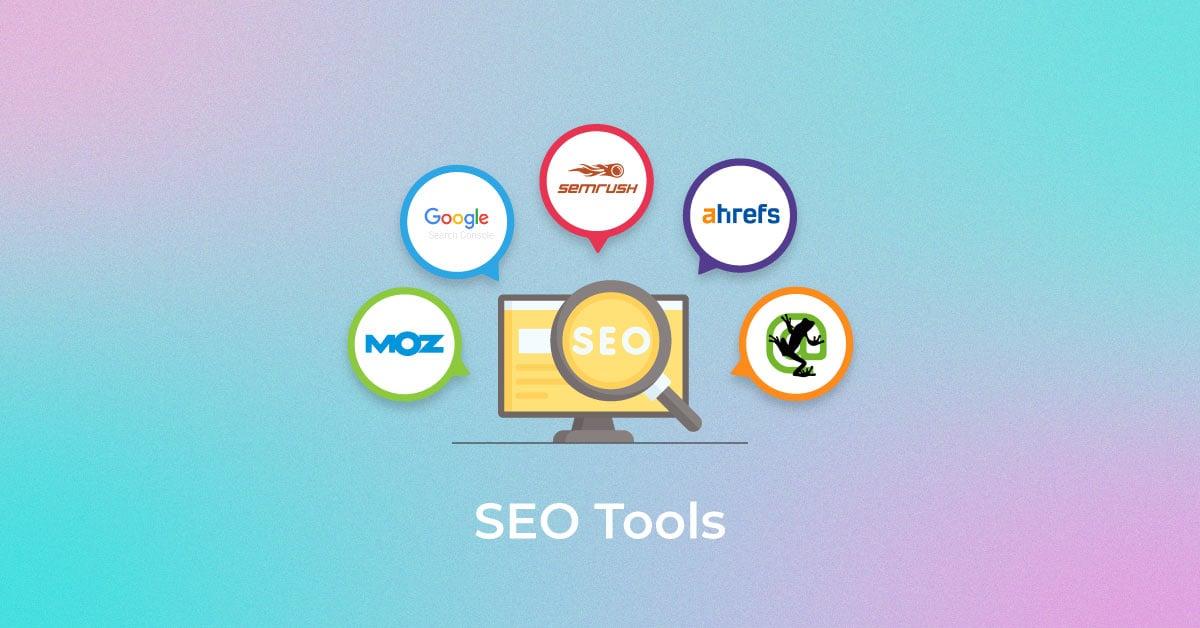
SEO Tools to Enhance Your Online Visibility
In the ever-evolving digital landscape, leveraging the right SEO tools can be a game-changer for small businesses looking to boost their online presence. While selecting a website builder is crucial, integrating effective SEO practices is equally important to ensure your site is not just built but also visible. Here are some essential tools that can seamlessly enhance your website’s visibility:
- Google Analytics – A must-have for tracking user behavior and understanding how visitors interact with your site. It provides insights into traffic sources, user demographics, and engagement metrics.
- SEMrush – This all-in-one tool helps you with keyword research, competitor analysis, and site audits. Its comprehensive reports will guide you in refining your SEO strategy.
- Yoast SEO – A favorite among WordPress users, this plugin simplifies on-page SEO. It offers real-time content analysis and suggestions to improve readability and keyword optimization.
- Ahrefs - Use Ahrefs for backlink analysis and content research. It’s particularly helpful for identifying linking opportunities and understanding what content performs best in your niche.
Incorporating these tools into your online strategy can significantly impact your search engine rankings. To further illustrate how these tools can be utilized, consider the following table summarizing their key features:
| Tool | Key Features |
|---|---|
| Google Analytics | User behavior tracking, traffic source analysis, demographic insights |
| SEMrush | Keyword research, competitor analysis, site audits |
| Yoast SEO | Real-time content analysis, SEO suggestions, readability checks |
| Ahrefs | Backlink analysis, content research, competitive analysis |
By utilizing these tools, small businesses can effectively identify keywords that resonate with their target audience and optimize their content accordingly. Furthermore, staying updated with the latest SEO trends and algorithm changes is essential. Tools like Moz and Google Search Console can keep you informed about your site’s performance and any necessary adjustments you need to make.
Don’t overlook the power of local SEO tools like BrightLocal. For small businesses, especially those with a physical presence, optimizing for local searches can drive significant traffic. BrightLocal helps manage local listings, reviews, and citations, giving your business a competitive edge in local search results.
Investing time in these SEO tools not only saves you money in the long run but also positions your website to attract more organic traffic, ultimately leading to increased sales and brand awareness. The goal is to create a user-friendly experience while ensuring search engines recognize and promote your site effectively.
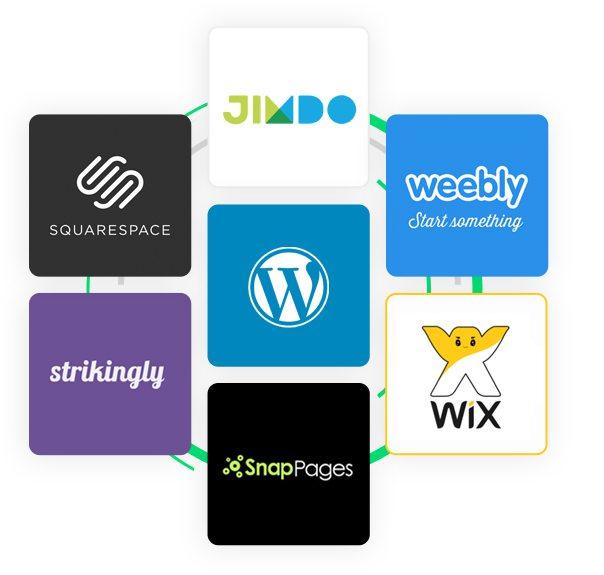
Integrations That Can Elevate Your Business
To truly harness the potential of your website, integrating it with other tools and platforms is essential. These integrations can streamline your operations, enhance customer experiences, and ultimately drive growth. Here are some key integrations to consider:
- Email Marketing Platforms: Tools like Mailchimp and Constant Contact can help you build your email list, automate campaigns, and analyze results, ensuring you stay connected with your audience.
- Social Media Platforms: Integrate your website with social media channels to promote content effortlessly, engage with customers, and enhance your online presence.
- Payment Gateways: Services such as PayPal, Stripe, and Square simplify the payment process, making it easier for customers to purchase products or services directly from your site.
- Customer Relationship Management (CRM) Systems: Tools like HubSpot or Salesforce can help you manage customer interactions, track sales, and automate marketing efforts.
- Analytics Tools: Google Analytics and similar services are crucial for tracking website performance, understanding user behavior, and making data-driven decisions.
Integrating these tools can transform how your small business operates. For instance, combining your website with an email marketing service can automate follow-up messages to customers who abandon their carts, increasing conversion rates. Similarly, linking your site to social media can help you gather user-generated content, which can be a powerful marketing tool.
Consider this simple integration table to visualize the benefits:
| Integration | Benefits |
|---|---|
| Email Marketing | Automated campaigns, customer engagement |
| Payment Gateway | Secure transactions, user trust |
| CRM Systems | Better customer insights, improved sales |
| Analytics Tools | Performance tracking, informed decisions |
Another powerful integration is with e-commerce tools. If you run an online store, consider using WooCommerce or Shopify. These platforms provide built-in tools that facilitate product management, customer engagement, and seamless transactions.
Moreover, leveraging chatbots can enhance customer service by providing immediate responses to inquiries. Integrating a chatbot with your website allows you to assist customers 24/7, improving their experience and increasing the likelihood of conversion.
Remember, the right integrations can save you time and budget while providing significant value to your business. Take the time to assess which tools align with your goals, and implement them to build a more efficient, customer-friendly online presence.

Customer Support: Why It Matters for Small Business Owners
For small business owners, the importance of customer support cannot be overstated. It’s not just about resolving issues; it’s about building relationships and creating a loyal customer base. In today’s competitive landscape, excellent customer support can be a significant differentiator that sets a business apart from its competitors.
When customers reach out for help, they desire prompt and effective responses. A responsive support system enhances customer satisfaction and can lead to increased retention rates. Here are some key reasons why customer support is essential:
- Trust Building: Consistent, reliable customer support fosters trust. When customers know they can rely on prompt assistance, they are more likely to return.
- Feedback Loop: Customer support interactions provide invaluable insights into customer preferences and pain points, enabling businesses to adapt and improve their offerings.
- Brand Loyalty: A positive support experience can turn a one-time buyer into a lifelong customer. Satisfied customers are also more likely to recommend your business to others.
- Competitive Edge: In a crowded market, exceptional customer support can be the distinguishing factor that keeps your business ahead of the competition.
Furthermore, the right website builder can significantly enhance your customer support capabilities. Many platforms offer integrated tools that streamline communication and improve user experience. Consider the following benefits:
| Website Builder | Support Features |
|---|---|
| Wix | 24/7 support, chat options, and community forums. |
| Squarespace | Email support, live chat during business hours, and extensive documentation. |
| Shopify | Robust online chat, email, and phone support. |
| Weebly | Email support and a community forum for peer assistance. |
Investing in a website builder that prioritizes customer support features can save you valuable time and resources. Additionally, implementing various communication tools, such as live chat or help desks, can enhance the customer experience and allow for quick resolutions.
Ultimately, customer support is more than just a service; it’s an ongoing conversation with your clients. Emphasizing this aspect in your business strategy not only solves immediate problems but also contributes to long-term success. By choosing the right website builder and investing in customer support, small business owners pave the way for improved satisfaction, loyalty, and growth.

Real Success Stories from Small Businesses Using Website Builders
When it comes to building a presence online, small businesses often face unique challenges. However, numerous entrepreneurs have transformed their ideas into flourishing ventures by leveraging the power of website builders. Here are some inspiring success stories that illustrate just how effective these tools can be.
1. Local Bakery Blossoms Online
After struggling to gain visibility in a competitive market, a local bakery turned to a website builder to create an engaging online storefront. With a few clicks, they showcased their delectable pastries and cakes, complete with mouth-watering images and a user-friendly menu. As a result, foot traffic increased by 40% within three months, proving that a well-crafted website can drive sales and build a loyal customer base.
2. Fitness Trainer Goes Virtual
A personal trainer recognized the need to adapt to a changing world and decided to offer online classes. By using a website builder, she not only set up a platform for her services but also integrated a scheduling tool for clients. Within six months, her online classes attracted clients from across the country, doubling her income and establishing her brand as a go-to resource for fitness enthusiasts.
3. Artisan Craftsman Expands Reach
An artisan craftsman specializing in handmade furniture created a stunning website using a website builder. By incorporating an e-commerce feature, he was able to sell his unique pieces to customers beyond his local area. The result? A 300% increase in sales in just one year! His story highlights how effective online marketing and a visually appealing site can lead to substantial growth.
4. Consulting Firm Attracts New Clients
A small consulting firm that primarily relied on referrals built a professional website to enhance their credibility. With informative blog posts, client testimonials, and a clear call-to-action, they were able to attract a steady stream of new clients. Within a year, their client base had tripled, showcasing how an authoritative online presence can position small businesses for success.
| Business Type | Key Features Used | Results Achieved |
|---|---|---|
| Local Bakery | Engaging images, user-friendly menu | 40% increase in foot traffic |
| Fitness Trainer | Online classes, scheduling tool | Doubled income |
| Artisan Craftsman | E-commerce feature | 300% increase in sales |
| Consulting Firm | Blog posts, testimonials | Tripled client base |
These stories are just a glimpse into the potential that website builders hold for small businesses. By simplifying the web development process, these tools empower entrepreneurs to focus on what they do best – delivering exceptional products and services. As more small businesses embrace this digital shift, the possibilities for growth and success are virtually limitless.
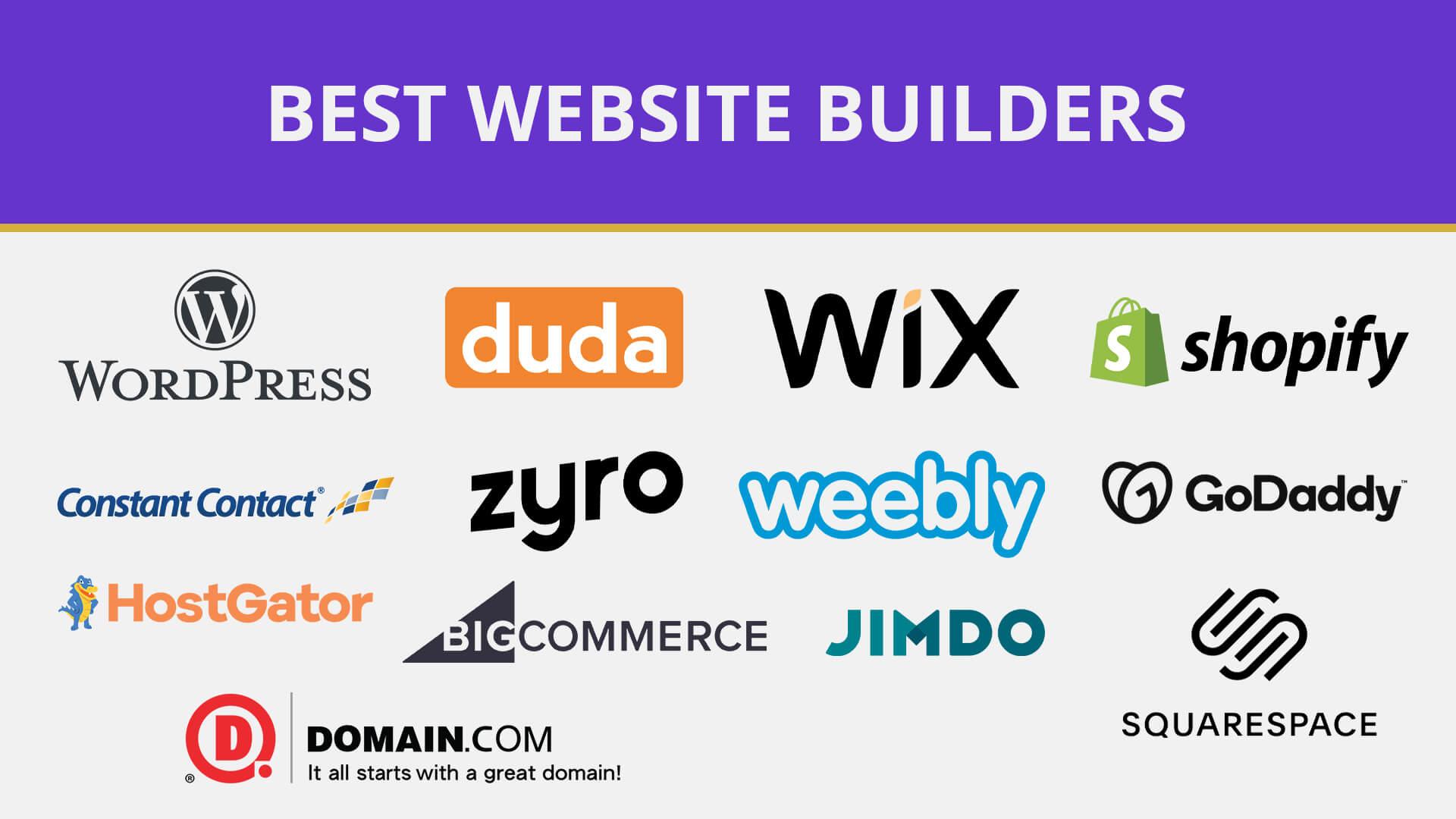
Comparing the Top Players: A Roundup of Features
When it comes to choosing the right website builder for your small business, it’s essential to weigh the features each platform offers. Here’s a look at some of the most popular website builders available today, highlighting their standout features that can cater to various business needs.
| Website Builder | Features | Best For |
|---|---|---|
| Wix |
| Users seeking creative freedom |
| Squarespace |
| Visual brands and portfolios |
| Shopify |
| Online stores and retailers |
| Weebly |
| Small businesses on a budget |
| WordPress.com |
| Content-driven websites |
Wix is perfect for those who want a hands-on approach to design without needing coding knowledge. With its drag-and-drop interface and an extensive range of templates, creating a unique site becomes a breeze. Plus, their SEO tools can help boost your visibility online.
If aesthetics are high on your priority list, Squarespace may be the one for you. Known for its stunning design templates, it combines beauty with functionality, making it ideal for portfolios and visual brands. Their integrated eCommerce solutions ensure that you can sell products seamlessly right from your site.
For businesses looking to establish a robust online store, Shopify stands out with its advanced eCommerce features. With tools for multi-channel selling and payment integrations, it provides everything you need to run a successful online retail operation.
Weebly offers a great balance between simplicity and functionality. Its user-friendly interface, coupled with built-in marketing tools, makes it an excellent choice for small businesses that want to grow without breaking the bank.
Lastly, WordPress.com is unmatched in terms of customization. With its extensive plugin library, you can enhance your site with various functionalities. Whether you’re starting a blog or a business site, the community support available means you’re never alone in your journey.

Making the Right Choice for Your Unique Needs
Choosing the right website builder can feel overwhelming, especially with so many options available. Each small business has its own unique needs, and the ideal platform often depends on specific goals and preferences. Here’s a breakdown of factors to consider that will help you make the best choice tailored to your business.
Identify Your Objectives
Before diving in, clarify what you want to achieve with your website. Are you aiming to sell products, showcase your portfolio, or provide information about your services? Understanding your primary goals will guide you in selecting a builder that offers the features you need. Here are some common objectives:
- E-commerce: If you plan to sell online, look for builders with robust e-commerce capabilities.
- Portfolio Display: Choose a platform that emphasizes design flexibility and image galleries.
- Blogging: Opt for builders that provide excellent blogging tools and SEO features.
Ease of Use
Not everyone is tech-savvy, so selecting a website builder that is user-friendly is crucial. Look for platforms that offer:
- Drag-and-Drop Functionality: This makes it easy to arrange elements without coding.
- Mobile-Responsive Templates: Ensure your site looks great on all devices.
- Intuitive Interface: A simple dashboard helps you manage your content without frustration.
Customization Options
Your brand identity should shine through on your website. Choose a builder that allows for customization in design and features. Consider:
- Template Variety: The more options available, the easier it is to find a style that fits your brand.
- CSS Editing: For those who want more control, look for platforms that allow custom coding.
- Third-Party Integrations: Ensure compatibility with tools you already use, like email marketing services or CRM systems.
Budget Considerations
While you want a high-quality website, you also need to keep costs in check. Compare pricing plans and look out for hidden fees. Here’s a quick reference table:
| Website Builder | Starting Price | Free Trial Available |
|---|---|---|
| Wix | $14/month | Yes |
| Squarespace | $16/month | No |
| Shopify | $29/month | Yes |
| WordPress.com | $4/month | Yes |
Support and Resources
Reliable customer support can make a huge difference, especially if you encounter technical issues. Check for:
- 24/7 Support: Access to help whenever you need it.
- Knowledge Base: Tutorials and FAQs to assist you in navigating the platform.
- Community Forums: A place to ask questions and share experiences with other users.
Taking the time to evaluate these factors will empower you to make an informed decision. By aligning the features of your chosen website builder with your business requirements, you can create a powerful online presence that serves your unique needs.
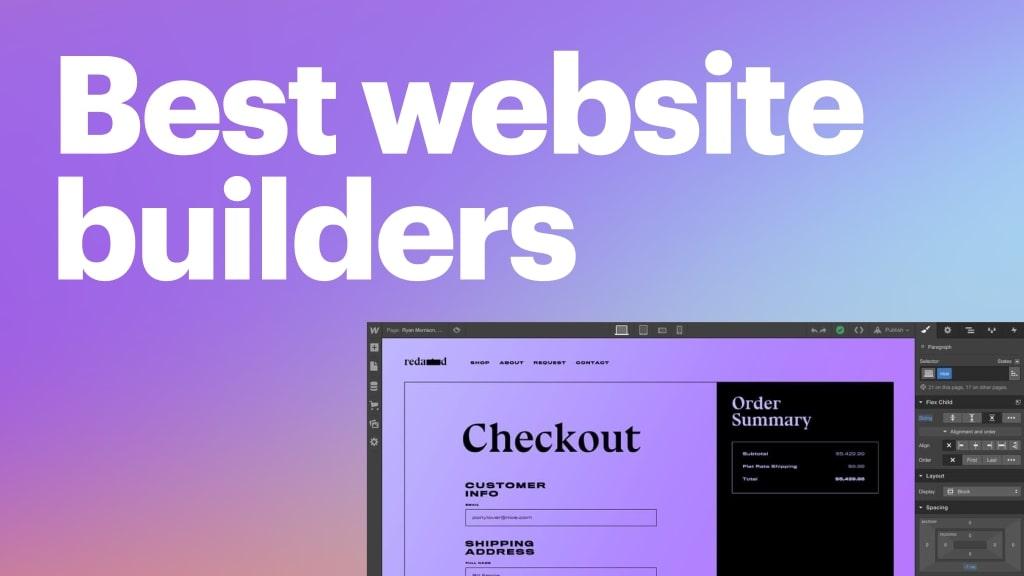
Getting Started: Tips for Building Your First Website
Building your first website can feel overwhelming, but with the right tools and a bit of guidance, you can create an impressive online presence for your small business. Here are some essential tips to help you get started smoothly:
- Define Your Purpose: Before diving into building, clarify the main objective of your website. Are you showcasing products, offering services, or sharing content? Knowing your goal will guide your design and content choices.
- Choose the Right Website Builder: Explore various website builders tailored for small businesses. Look for features that align with your needs, such as e-commerce capabilities, customizable templates, and easy-to-use interfaces.
- Prioritize User Experience: A clean, intuitive layout ensures visitors can navigate easily. Use straightforward menus and keep important information accessible. Don’t forget that mobile-friendliness is crucial—many users will access your site via smartphones.
- Create Compelling Content: Your website’s content should resonate with your target audience. Use engaging language, high-quality images, and clear calls to action to encourage visitors to take the next step, whether it’s to contact you or make a purchase.
- Optimize for SEO: To help potential customers find you online, incorporate basic search engine optimization practices. Use relevant keywords, optimize image alt text, and create descriptive page titles.
As you begin to build, remember that less is often more. A simple, effective design can make a lasting impression. Consider these additional tips:
- Use a Consistent Color Scheme: Choose a color palette that complements your brand and stick with it throughout your site. This helps create a cohesive look.
- Regular Updates: Keep your content fresh by regularly updating it. This not only improves SEO but also shows visitors that your business is active and engaged.
- Test Your Website: Before launching, test your website on various devices and browsers. Make sure all links work and that your site loads quickly to improve user experience.
| Website Builder | Best For | Key Features |
|---|---|---|
| Wix | Visual Customization | Drag-and-drop editor, App Market, eCommerce tools |
| Squarespace | Creative Professionals | Stunning templates, built-in SEO, blogging tools |
| Shopify | E-Commerce | Secure payment gateways, inventory management, POS |
| WordPress.com | Content Management | Extensive plugins, customizable themes, blogging focus |
Starting your website doesn’t have to be a daunting task. By taking it step by step and utilizing the right resources, you’ll create a professional online presence that not only looks great but also functions effectively. Embrace the process, and soon, you’ll have a website that reflects your business vision!
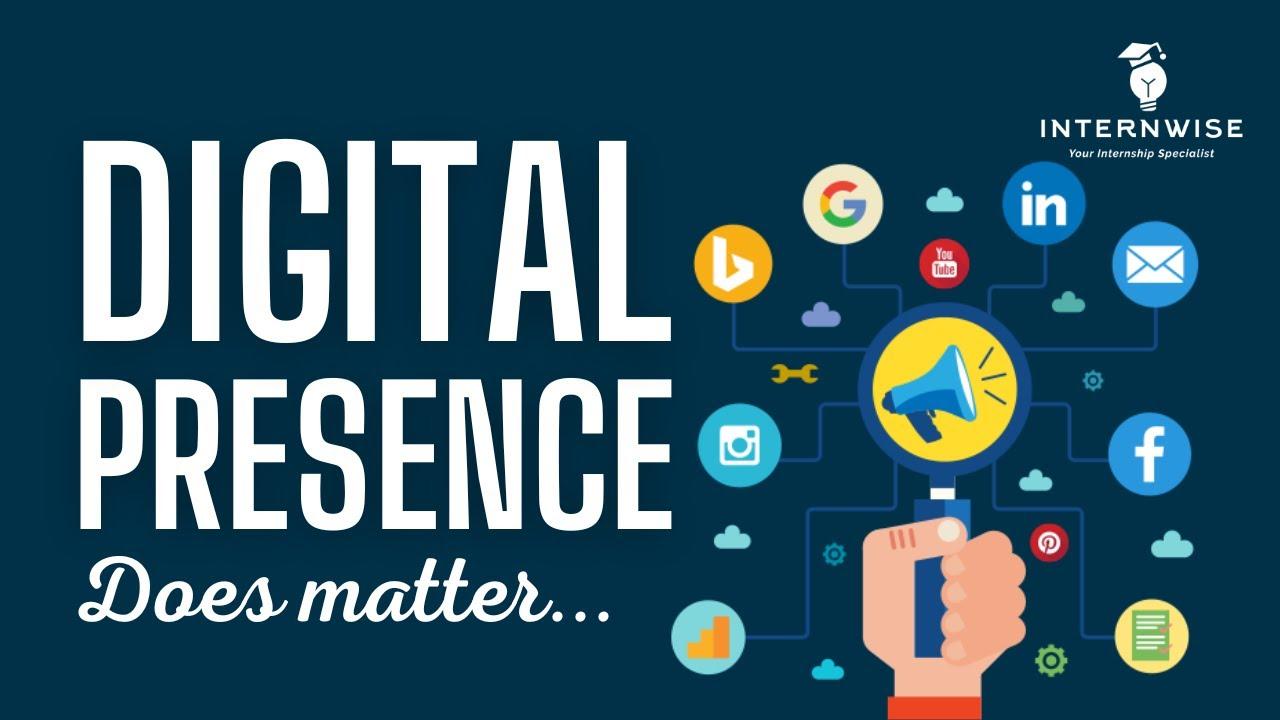
Final Thoughts on Building Your Digital Presence
Establishing a robust digital presence is more crucial than ever for small businesses. In a world where online visibility can make or break your brand, leveraging the right tools is indispensable. With the right website builder, you can create a professional-looking site that captures your essence and engages your audience without straining your budget or consuming your precious time.
When choosing a website builder, consider these key factors:
- User-Friendliness: Opt for platforms that are intuitive and require little to no coding skills. This ensures that you can focus on your business rather than getting lost in technical jargon.
- Customization Options: Look for builders that allow ample customization. Your website should reflect your brand personality, so flexibility is key.
- Responsive Design: Ensure that the builder offers mobile-responsive templates. A significant amount of web traffic comes from mobile devices, and your site should look great on all screens.
- SEO Features: A great website is nothing without traffic. Choose builders that provide integrated SEO tools to help your site rank better in search engines.
Another vital aspect is the availability of support and resources. Small business owners often juggle multiple responsibilities, so having access to responsive customer support can be a lifesaver. Builders that offer comprehensive tutorials, forums, and quick customer service can help you overcome challenges efficiently.
To give you a clearer picture, here’s a quick comparison of some of the top platforms:
| Website Builder | User-Friendly | Customization | SEO Tools |
|---|---|---|---|
| Wix | Yes | Excellent | Built-in SEO tools |
| Squarespace | Yes | Moderate | Good SEO features |
| Weebly | Yes | Basic | Integrated |
| WordPress.com | Moderate | Highly customizable | Comprehensive |
Remember, a digital presence extends beyond just having a website. It involves creating valuable content, engaging with your audience on social media, and utilizing email marketing to drive traffic to your site. The builders you choose can often support these additional features, making them an all-in-one solution for your online strategy.
Ultimately, the right website builder will not only save you time and budget but also empower you to build a brand that resonates with your target audience. Embrace the digital landscape with the right tools at your disposal, and watch your small business thrive in ways you never thought possible.
Frequently Asked Questions (FAQ)
Q&A: 12 Best Website Builders for Small Businesses to Save Time and Budget
Q: Why is having a website important for small businesses?
A: Great question! In today’s digital world, having a website is like having a storefront that’s open 24/7. It helps potential customers find you online, learn about your products or services, and even make purchases. Plus, a professional website builds credibility and trust, which is essential for small businesses trying to stand out.
Q: What should I look for in a website builder?
A: When choosing a website builder, consider factors like ease of use, customization options, pricing, and customer support. You want something that’s user-friendly, especially if you’re not tech-savvy. Look for templates that suit your brand and ensure that the builder can scale with your business as it grows.
Q: Are there free website builders available, or do I need to pay?
A: There are indeed free website builders out there, but they often come with limitations, such as ads on your site or restricted features. Investing in a paid option usually provides better customization, support, and overall professionalism, which can save you time and headaches in the long run.
Q: Can I really build a professional-looking website without technical skills?
A: Absolutely! The website builders on our list are designed to be intuitive and user-friendly. Most come with drag-and-drop features, meaning you can design your site without any coding knowledge. You’ll be amazed at how easy it is to create a stunning website that looks like it was built by a pro.
Q: How long does it take to build a website using these builders?
A: Depending on how complex you want your website to be, it can take anywhere from a few hours to a couple of days to set up. Most of these builders come with ready-to-use templates, so you can have a site up and running very quickly. Once you get the hang of it, the process is pretty smooth!
Q: What if I want to add more features later?
A: Most website builders are designed with scalability in mind. As your business grows, you can easily add features like e-commerce capabilities, contact forms, or blogs. Just be sure to choose a builder that allows for upgrades and additional functionalities without too much hassle.
Q: How do I choose the best website builder for my specific needs?
A: Start by outlining what you want your website to achieve. Are you primarily showcasing your services, or do you plan to sell online? Look for builders that cater to your needs. Our article breaks down the pros and cons of each option, so you can find the perfect match for your business.
Q: What’s the potential return on investment (ROI) for having a website?
A: The ROI can be significant! A well-designed website can drive traffic, generate leads, and convert visitors into customers. With a few simple tools, you can track your website’s performance and see how it contributes to your bottom line. The investment you make in a quality website can pay off multiple times over!
Q: Can these website builders help with SEO?
A: Yes, many of the builders on our list come with built-in SEO tools to help improve your website’s visibility on search engines. This means you can attract more organic traffic without needing to be an SEO expert. Optimizing your website for search is crucial for growing your online presence!
Q: What if I face issues while building my website?
A: Don’t worry! Most reputable website builders offer excellent customer support, including live chat, tutorials, and forums. If you run into any issues, help is typically just a click away. Plus, the community around these builders is often very supportive!
Q: Where can I find the best website builders for my small business?
A: You’re in luck! Our article on the “12 Best Website Builders for Small Businesses” provides a comprehensive guide, outlining each builder’s features, pricing, and ideal use cases. It’s a great resource to kickstart your decision-making process and find the best fit for your business. Happy building!
In Conclusion
As we wrap up our exploration of the 12 best website builders for small businesses, it’s clear that the right platform can make a world of difference in your online journey. Whether you’re just starting out or looking to elevate your existing site, these tools are designed to save you both time and money, allowing you to focus on what truly matters—growing your business.
Remember, a well-built website is more than just a digital storefront; it’s your brand’s first impression, a powerful marketing tool, and a hub for customer engagement. By choosing one of these user-friendly website builders, you’re investing in a solution that can streamline your processes and enhance your online presence.
So, why wait? Dive in, explore your options, and take that first step towards creating a website that not only looks great but also performs effectively. After all, your small business deserves the best, and with these website builders at your fingertips, you’re well on your way to making a lasting impact in the digital landscape. Happy building!



